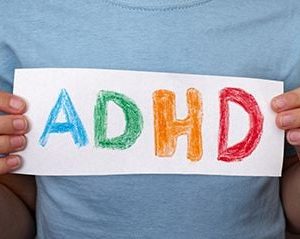- Could Your Grocery Store Meat Be Causing Recurring UTIs?
- Are You Making This Expensive Thermostat Error This Winter?
- Recognizing the Signs of Hypothyroidism
- 10 Strategies to Overcome Insomnia
- Could Artificial Sweeteners Be Aging the Brain Faster?
- Techniques for Soothing Your Nervous System
- Does the Water in Your House Smell Funny? Here’s Why
- Can a Daily Dose of Apple Cider Vinegar Actually Aid Weight Loss?
- 6 Health Beverages That Can Actually Spike Your Blood Sugar
- Treatment Options for Social Anxiety Disorder
Parenting Style Could Influence ADHD Severity in Kids

A shift in parenting early in a child’s development might help curb the symptoms of attention-deficit hyperactivity disorder (ADHD), new research suggests.
When a preschooler exhibits an “excitable or exuberant” temperament, dialing down a “controlling” style of parenting in favor of what’s known as “directive” parenting could mean milder ADHD symptoms as a child ages, Canadian researchers report.
“More directive parenting, which is not controlling but guides the child with verbal and physical cues, can help develop the child’s self-regulatory skills and prevent their ADHD symptoms from increasing,” explained study co-author Dr. Heather Henderson, a professor of developmental psychology at the University of Waterloo, in Ontario.
Psychologists have long understood that the interplay of a child’s temperament with their mom and dad’s parenting style can play a role in how ADHD unfolds. Both factors influence the executive function of the child’s brain, the researchers explained.
One type of temperament — exuberant — has been tied to the onset of ADHD, the team added.
Exuberance involves “high excitement, curiosity and positive responses to unfamiliar people and contexts,” Henderson explained in a university news release.
While exuberance has some positive aspects, it is also linked to troubles with self-regulation of behaviors, as well as issues around working memory and flexible thinking.
Combined with family factors, an exuberant temperament “might predispose some kids to develop ADHD symptoms,” Henderson said.
In the study, her team tracked outcomes for 291 kids ages 4 months to 15 years. They observed child temperament and parent-child interactions at age 3, tested the child’s memory/thinking at age 4 and tracked ADHD symptoms in kids (as reported by parents) up to age 15.
The main finding: ADHD symptoms focused on memory and thinking may hinge on a combination of a child’s temperament and their mom and/or dad’s parenting styles.
Kids with less “directive” style parents tended to display increased ADHD symptoms throughout childhood, the researchers reported recently in the journal Research on Child and Adolescent Psychopathology.
“Symptoms of ADHD typically stabilize from ages 5 to 9 and decrease from ages 9 to 15. But for predictable cases of very young children with exuberant temperament and less directive parenting, that stabilization may not occur,” Henderson explained.
More information
Find out more about ADHD at CHADD.
SOURCE: University of Waterloo, news release, Feb. 15, 2024
Source: HealthDay
Copyright © 2026 HealthDay. All rights reserved.










